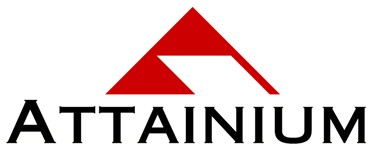Back by popular demand, “The Disaster Experience” raised critical issues at BOMA’s North American Commercial Real Estate Congress
“Attainium’s session The Disaster Experience was one of the highest-rated courses at last year’s BOMA conference, so we brought them back to offer a session on sheltering in place at the 2005 North American Commercial Real Estate Congress,” said Lorie Damon, Director of Education for the Building Owners and Managers Association International (BOMA). “Almost any event can be the catalyst for an order to shelter-in-place, and it’s important that BOMA take a leading role in preparing our members for such a situation. The great thing about working with Attainium is that they do a nice job of using information relevant to our membership and tailoring the session to our specific needs.”
Virginia-based Attainium Corp designed the simulation to help participants “gain an understanding of the many issues that can crop up in shelter-in-place situations,” said Bob Mellinger, Attainium president and CEO. “In any shelter-in-place scenario, anything can happen. You can’t predict how people will react to being held against their will… what would management do if someone just decides to leave? It really puts being prepared to the test.”
“It did give us pause to think we had never considered the abnormal behavior of people in a shelter-in-place situation,” said Jim Young, senior director of corporate facilities and services for Marriott International Inc. in Washington DC. “The exercise opened my eyes to the fact that not everyone may be well behaved, and I started thinking about people’s reactions.”
“Then the legality of retaining people against their will came up,” said Lauren Peng of Cousins Properties, who is the property manager for Charlotte Gateway Village. “I wouldn’t have thought about checking this out before, and it was a very important thing for me to take back. You can’t have people saying ‘too bad, I’m leaving.’”
The 96 participants at the 2005 session worked in teams, taking on different roles and acting or reacting as the scenario unfolded. “It gave me an opportunity to see things through lenses that I wouldn’t use in the job I’m in,” Young said. “It made me more empathetic.”
“I enjoyed this exercise more than any others I’ve done; it exceeded my expectations. It’s one of the best role-playing situations I’ve been to anywhere,” Peng said. “The training helped all of us see possible weaknesses in the plans we had, for example making sure that everyone knew what to do in these situations because we might not be there when something happened.”
“We put a lot of emphasis on working through the various parts of the scenario as they develop,” Mellinger said, “which helps provide participants with insight into how incidents could affect any organization that wasn’t prepared or didn’t have sufficient flexibility to respond as needed. The situations unfold realistically, with poor or incorrect information, media pressure, bad decisions, and the like.”
“They were real-time events, so you had to deal with real pressure, and it gave you the sense that it was actually happening,” said Cynthia Hernandez, assistant property manager for REOC Partners Ltd. of San Antonio, Texas. “This wasn’t a seminar where you had to try to stay awake. We worked as a team and we all helped each other.
“It became clear that you can’t afford to think that a shelter-in-place situation ‘can’t happen here.’ Anything could happen to cause it,” Hernandez said. “You need to think about it and you need a plan.”
“I got lucky,” said Pete Villanueva, who is the manager of project implementation and property management for western US and Canada facilities for Xerox Corporation, “because the group I sat with had a lot of experience and we were able to stay a couple of steps ahead for that reason. This session required a lot of thinking out of the box, but it was a relaxed setting for brainstorming and getting out ideas.
“There was enough time given to understand things as they occurred and to role play as a group to develop a meaningful response,” Villanueva said. “Some of the most important learning was that sharing information, communicating, and keeping everyone up to date is critical in SIP situations.”
# # #

